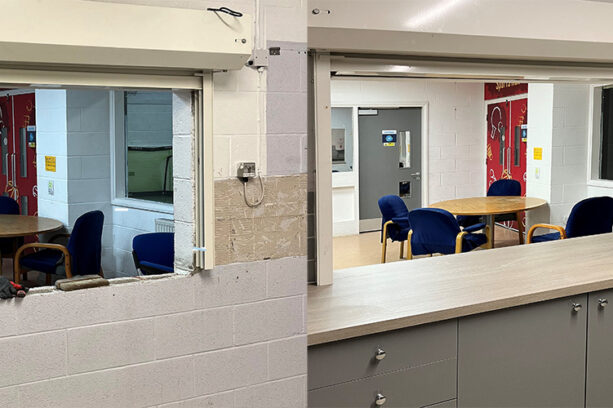Could COVID-19 mean that you or your children’s entitlement to child benefits have changed?

Here at Equilibrium, we always try to remain optimistic and, in the words of Robert H. Schuller: “optimism refuses to believe that the road ends without options.”
Whilst the events of the last couple of months have created uncertainty, worry and outright pessimism, we feel that opportunities remain available.
Many of us have, or know of someone who has, been furloughed, a term not commonly used until recent weeks. We have seen companies make difficult decisions to attempt to ensure the future of their business is secured. To support this, and in an attempt to provide some certainty for employees, the government furlough scheme has been put in place to cover 80% of employees’ salaries up to £2,500 per month. This still means that many people are facing a drop in income at this time.
But could a 20% reduction in income mean child benefits could be reinstated. Or, could the tax paid for those with incomes between £50,000 – £60,000 reduce?
This blog will explore this in more detail.
What is child benefit?
Firstly, let us start by identifying just what child benefit is.
Free money! (For some).
For those with children under 16 (or under 20 if they are in approved full-time education or unpaid training), the government will provide, for the 2020/21 tax year, a statutory payment as follows:
- £21.05 per week for your first child;
- £13.95 per week for any further children
This doesn’t seem like a lot, but assuming you begin claiming it upon the birth of your child, it equates to £17,514 over the 16 years.
The £50-60k rule
For many of our clients or our clients’ children, their income is more than £50,000 and rather than give you less, HMRC will continue to pay it to you, but will kindly ask that you pay it back.
This works as follows:
For every £100 you receive above £50,000, you’ll pay back 1% of the maximum amount of child benefit you’re entitled to.
So, if you get £55,000, you will pay back 50%.
Once you have £60,000 or more coming in, the charge you’ll pay back is 100% of your entitlement, essentially meaning you won’t get any benefit (but would still be required to complete a tax return). This has caused many to simply stop claiming to avoid the arduous task of completing a tax return.
I appreciate that for those that have been furloughed, this will be a tricky time. However, if time has become a new asset, you should consider if your eligibility to child benefits has changed.
Maximising free money
For those with income that remains above £60,000, or indeed, for those that have not been furloughed but still fall into this category, there are options available to ensure you can benefit from the benefits.
One of the most efficient ways to do so is to make a personal pension contribution. Let me explain how this would work with a nice example:
Sarah earns £55,000 a year and her child benefits are therefore reduced by 50% to £547.56 per year. Sarah could contribute £4,000 (net) to a pension which will immediately attract £1,000 of basic tax relief and will be applied at source. Her £4,000 contribution immediately becomes £5,000.
Sarah will also be eligible for an extra £1,000 in higher rate tax relief which can be claimed via her tax return. So, at a cost of £3,000 she now has £5,000 in her pension.
But here is the kicker. In addition to the tax relief, Sarah’s adjusted net income will be reduced to £50,000 and she will now be eligible for the full child benefit – £21.05 per week. That’s an extra £547.04 a year!
So, through a combination of tax relief and restoring the child benefit, Sarah has £5,000 dedicated for her long-term future at a cost to her of just £2,453.
Helping the family efficiently
It’s important to note that anyone can contribute to someone’s pension. For example, a number of our clients have been in touch recently looking to support their families through this uncertain time.
Even in normal circumstances, young families like Sarah may be challenged to find the cash to take advantage of the above opportunities.
But what if Sarah’s parents, Bill and Jean, gifted £4,000 into Sarah’s pension for her. Not only would Sarah have £5,000 dedicated towards her long-term retirement, but she would receive a total of £1,548 today through a combination of tax relief and restored child benefit.
If Bill and Jean have an inheritance tax liability also, the total tax savings for the £4,000 gift could total £4,147. That’s 104%!!!!
Every family situation is unique, particularly during these difficult times. If you are considering making any gifts, Equilibrium Financial Planning’s advisers have the experience to help clients find the way that best fits yours and your children’s circumstances.
The information provided through the Equilibrium Financial Planning website is based on our opinion and is for general information purposes only. It should not be construed as financial advice. The information provided regarding taxes and allowances are based on our understanding of current rules and regulations, which may change. The impact of any tax changes will depend on individual circumstances.

